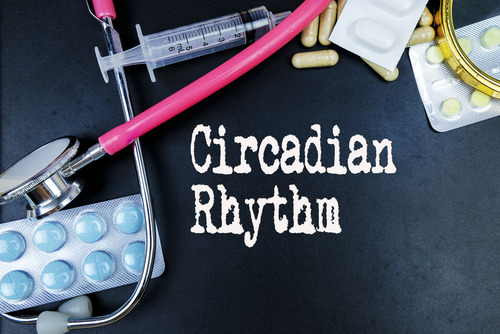2017 Nobel Prize in Medicine-How much do you know about it ?
M3 India Newsdesk Oct 20, 2017
The Nobel Prize this year comes with a message that the body in itself has a method of its own to keep itself on schedule, here is a closer look at the research findings. 2017 Nobel prize in medicine was awarded to Jeffrey Hall, Michael Rosbash, and Michael Young for their decades-long work on the circadian clock; here is a closer look at their research findings.

2017 Nobel prize in medicine was awarded for the discoveries about the body's rhythms which has vast implications for human health.
It has always been an intriguing question for science as to how the human body governed its own schedule when we did not have modern instruments such as watches, or electricity. The human body was able to tell us when to eat, sleep and when we needed to rest as well, all without the help of modern instruments. This work was one of the biggest mysteries of science. However, the three scientists, Jeffrey C. Hall, Michael Rosbash and Michael W. Young were able to decode this vital set of processes among living beings and made our understanding of human biology much easier.
Using fruit flies (Drosophila melanogaster) as a model organism, this year's Nobel laureates isolated a gene that controls our biological rhythm, commonly called the Circadian rhythm. They showed that this gene encodes a protein that accumulates in the cell during the night, and is then degraded during the day. Subsequently, they identified additional protein components of this machinery, exposing the mechanism governing the self-sustaining clockwork inside the cell. We now recognize that biological clocks function by the same principles in cells of other multicellular organisms, including humans.
The body is extremely precise and it gives us flawless signals to adapt to the time of the day. It regulates critical life functions such as sleep, hunger, our digestion and metabolism and even our hormone levels which vary according to the time of the day. Our body runs according to the cues of this gene, and when we do not listen to its cues, the body responds to it by showing symptoms which we can sometimes feel when we are jetlagged.
Researchers before them had known that not just humans, but even plants and other animals had such rhythms wherein they conducted processes even if other things such as the sun and daylight were not regular. However, how exactly this rhythm worked was still a mystery to most researchers.
The Nobel winning trio discovered that a protein, which they called Per according to the period gene which was discovered to regulate our body clocks, accumulated in our bodies during the night and then degraded during the day. However, the mystery remained as to how the protein reached the cellular nucleus, where the real activity in a cell happens. Michael Young contributed by showing that another protein called Tim, which when bound with Per, had the ability to reach the cell nucleus and stop the Period gene from functioning. Another gene worked to control the accumulation and degeneration of the protein, which ensured that this protein combination was able to sustain this cycle for about 24 hours, a required by the human body.
Disregarding the cues of the circadian rhythm such as sleep and hunger or altering them with stimulants and medications have shown to be dangerous for health. Research studies among pilots, shift workers who work at night has shown that disregarding the circadian rhythm can increase a person’s chances of developing metabolic disorders such as diabetes and also increases chances of obesity, which leads to many other metabolic and chronic disorders.
What does it mean for Indians?
The circadian-clock genes have potential therapeutic relevance with respect to the pathogenesis and treatment of obesity-related metabolic diseases including type 2 diabetes and metabolic syndrome. Among Indians, diabetes is predicted to be one of the biggest causes of disease and death in the future. In fact, India is touted to be the next diabetes capital of the world with nearly 41 million or 4.1 crore diabetes patients already living in India. The circadian rhythm, changing sleep and eating patterns are some of the biggest triggers and factors causing diabetes.
Similarly, nearly 5% of Indians are reported to be suffering from sleep disorders, which too can be triggered by irregular sleep timings, sleep and eating habits and consumption of stimulants such as caffeine or alcohol. Emerging research in the field points to the fact that the ancient Indian idea of following a ‘dinacharya’ or a daily schedule was probably not off the mark. Ayurveda recommended a regular schedule although they might not have known the physiological mechanism behind it.
In sum, Indian doctors of all streams need to emphasize to patients that a regular and moderate lifestyle can help in maintaining health. The Nobel Prize this year comes with a message that the body in itself has a method of its own to keep itself on schedule. If that is indeed so, doctors need to tell patients that just as nothing in our world will be functional if we do not follow our watches and work accordingly, our body does not function properly if we disregard its own clock. It may not rebel immediately, but slowly and surely, it will ensure that the person bears the consequences of not following it. That is advice that our developing nation and its people need to follow seriously!
-
Exclusive Write-ups & Webinars by KOLs
-
Daily Quiz by specialty
-
Paid Market Research Surveys
-
Case discussions, News & Journals' summaries